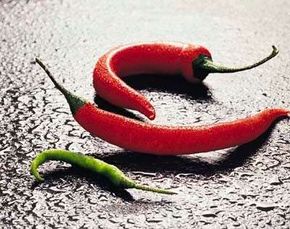Sinusitis is an uncomfortable condition that can be caused by a bacterial, fungal, or viral infection, or it can arise from an allergic reaction. Depending on the sinus cavities involved, pain occurs in the forehead, between the eyes, or in the mouth area. Typically, there is a yellow or green discharge from the nose, often dripping into the throat. In addition to the pain, the head feels heavy. The condition can become chronic, especially when a person has repeated colds.
Advertisement
Unless a person gets sufficient rest, avoids mucus-forming foods, and recovers fully, the sinuses will not drain completely. It is important to treat this condition as early and aggressively as possible to prevent a serious infection that requires antibiotic treatment. A vicious cycle of repeated infections and antibiotic use can develop, further weakening the immune system and making the person more prone to future infections.
Traditional diagnostic patterns for sinusitis are wind cold, wind heat, lung heat, or liver and gallbladder fire that has ascended to the head. While each pattern has a different treatment, herbs and acupuncture points are used in all the patterns. Acute conditions respond to acupuncture and herbal therapy within a few days. Needling points alongside the nose, such as Large Intestine 20 and the extra points Bitong or Yintang, is exceptionally effective at clearing the nasal passages and sinuses. These points are a little painful for about a second or two, but the discomfort is usually rewarded with an immediate clearing of the nasal passages and sinuses. Other points are selected according to the specific pattern of disharmony underlying the sinus problem.
A good base herbal formula for the practitioner to work from is Xanthium Powder (cang er san), which comprises Xanthium fruit (cang er zi), magnolia flower (xin yi hua), Angelica dahurica root (bai zhi), and field mint or peppermint (bo he). Since this formula is on the warm side, some cooling herbs such as honeysuckle flowers (jin yin hua) and Scutellaria root (huang qin) are added when signs of heat (fever or yellow mucus) are present. An appropriate patent medicine is Bi Yan Pian for the nasal and sinus congestion, along with a heat-clearing formula such as Chuan Xin Lian Antiphlogistic Pills.
Diet is especially important in any disharmony involving mucus, since many foods tend to increase it. The patient should avoid cold, greasy, and excessively spicy foods. Sweets make the condition worse, sometimes with immediate feedback from the sinuses in the form of more congestion and pain.
Once an acute attack has been cleared, Codonopsis root (dang shen) or Astragalus root (huang qi), herbs that tonify the spleen, should be taken. They can be found in patents such as Shen Qi Da Bu Wan. When spleen qi is strong, less mucus is produced, and the immune system is better able to fight off the colds that lead to sinusitis.
Advertisement
